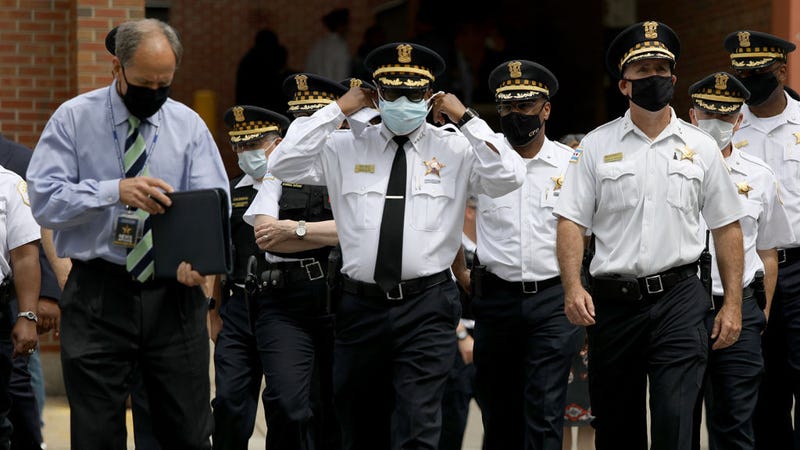
CHICAGO (WBBM NEWSRADIO) -- In a full day of questioning, Chicago Police Superintendent David Brown and his team faced cordial, but sometimes tough, remarks during a City Council budget hearing about the Department's downtown presence in the wake of summer looting, the need for mental health professionals to assist dispatch calls and its hefty budget.
Brian McDermott, the Police Department’s chief of operations, explained that protocol changed this year: about four to six officers from every police district have been assigned to beef up patrols in the parts of downtown hit twice by looting.
But 4th Ward Alderman Sophia King — who chairs the progressive caucus — was frustrated. She asked how the Department could justify taking officers from the neighborhoods and sending them downtown to "wait for something to happen" when there are shootings going on in other neighborhoods.
"To me, you are focusing disproportionately on an area waiting for a looting incident to happen while there are shootings happening there and elsewhere," King said.
McDermott tried to reassure her that a citywide unit was confronting troubled spots in the neighborhoods. And and Superintendent Brown pushed back, saying that downtown is a neighborhood too that has businesses and residents, just like any other.
"When we have incidents happen in the downtown neighborhood, like they do in other neighborhoods, we have resources to address those issues," Brown said.
On another issue, Brown said he agrees that police officers are often sent to calls where a person with mental health issues are involved, and he said more officers are receiving mental health training.
But, 10th Ward Alderwoman Susan Sadlowski-Garza wants to go further. She said she believes a mental health professional should be sent in some case.
"I believe every officer should be trained in that but I'm also a big proponent of having a mental health professional respond to mental health emergencies," Sadlowski Garza said.
In fact, Brown said the department is starting a pilot program where mental health professional might be sent instead. He said the co-respondent program will have mental health professionals at OEMC monitoring, which calls might be better handled by a mental health specialist. But, Brown added that--in cases where there might be a phsyical altercation, police officers would still respond as back up, to keep everyone safe.
He says the effort begins in earnest next year.
Brown also faced questions about Police overtime and the rate of solving homicide cases. Brown said that rate is going up. He also discussed manpower and, of course, the amount of the Department's budget.
Despite calls to defund the department and reallocate funds, Lightfoot has kept her stance firm on keeping the police budget fully stocked.
